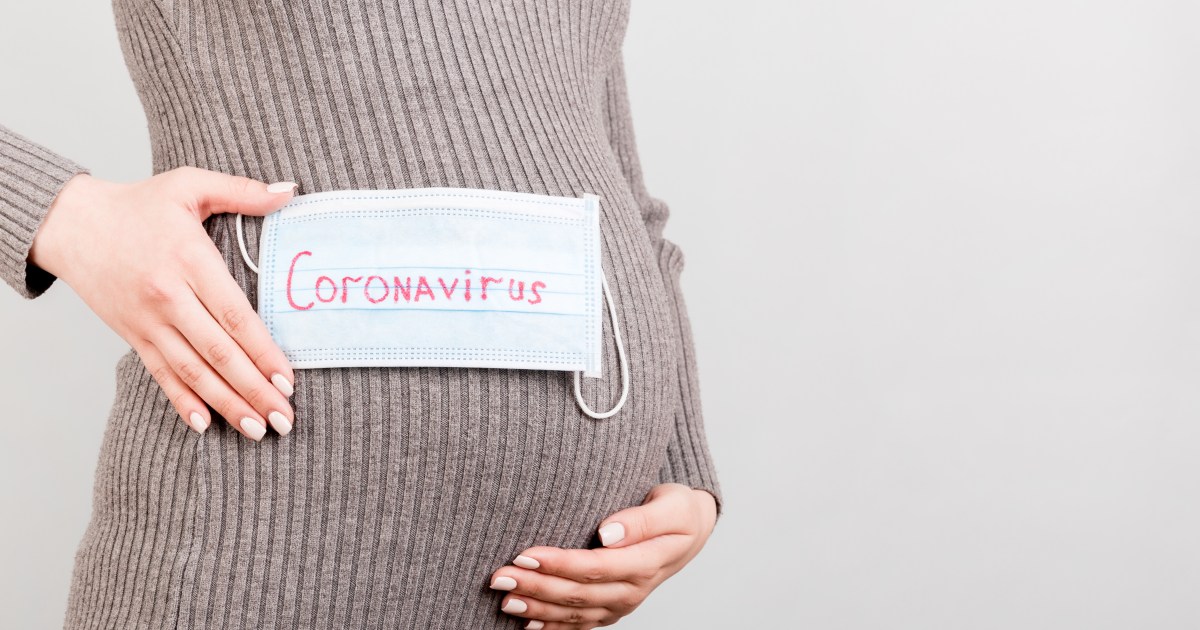Doctors in France have reported what they believe to be the first confirmed case of the transmission of the novel Courna virus, which causes Covid-19, from a pregnant woman to her fetus in the womb. At a time when data indicated that the immune response in the human body against the disease may be short-lived.
The child developed a brain infection within days of his birth, after the Coruna virus crossed the placenta and caused prenatal infection. The good news is that the child has recovered.
This case was published in the journal Nature Communications after the birth of a number of children with corona, who were suspected by doctors of contracting the virus in the womb. But doctors were unsure of whether the children were injured in the womb, during childbirth or shortly after.
"Unfortunately, there is no doubt that the disease will be transmitted in this case," said Daniel de Luca, medical director of pediatrics and neonatal intensive care at Antoine Claire Hospital in Paris.
"Doctors must be aware that this may happen. This is not common, this is certain, but it may happen and should be taken into account," the Guardian newspaper reported.
And the tests conducted on the child's blood and fluids extracted from the lungs revealed infection with Covid-19, and that the virus has spread from the mother’s blood to the placenta, where it has multiplied and caused inflammation, then transferred to the fetus.
The highest levels of the virus are found in the placenta, and are rich in the same receptors in the lungs that the virus uses to invade human cells.
And while the child seemed healthy at first, on the third day he became irritable with feeding problems, and developed muscle spasms, which are neurological symptoms that appear in some cases of meningitis.
De Luca said that the good news is that the child has recovered.
Asked if pregnant women should be careful about social distancing and washing their hands to reduce the risk of infection, De Luca said, "This is very logical and important whether you are pregnant or not."
Reassurance
For their part, experts said that cases of transmission of Covid-19 disease from the pregnant woman to the fetus are rare and should not cause concern, and this is a comment on this case.
In their review of the details of this case, the doctors stated that monitoring the virus in the placenta membrane as in the blood of the child and the mother indicates that transmission of the virus through the placenta is possible. But they added that further studies are necessary to prove this.
Marian Knight, a professor of maternal and child health at the University of Oxford, said the condition was interesting, but should not be of concern to pregnant women.
"Among the many thousands of children born to mothers who are infected with SARS Cove 2, only a small percentage is found to be infected with the virus by 1% to 2%."
In the French case, the mother and her baby were cured, and they were released from the hospital.
It is very rare for fetuses to be infected with Covid-19 from their mothers, said Andrew Scheinan, professor of obstetrics at King University in London.
He referred to British data on 244 children born to HIV-positive mothers, and Covid-19 had no effect in 95% of them.
Immune response
Scientists said Tuesday that evidence has emerged and indicates that the immune response in the human body against Covid-19 disease may be short-lived, making it more difficult for vaccine developers to reach preventive doses that are fully able to protect people in future outbreaks.
Initial studies conducted in China, Germany, Britain and other regions concluded that patients infected with the Coruna virus develop antiviral protective antibodies as part of the defense system of the immune system in the body, but it appears that these bodies remain effective for only a few months.
"Most people develop antibodies, but their effect often fades quickly, which indicates that there may be no significant immunity," said Daniel Altman, professor of immunology from Imperial College London.
Experts say this raises major problems for developers of potential vaccines for Covid-19 therapy, and for public health authorities as well who seek to deploy these vaccines to protect their nationals from future outbreaks.

